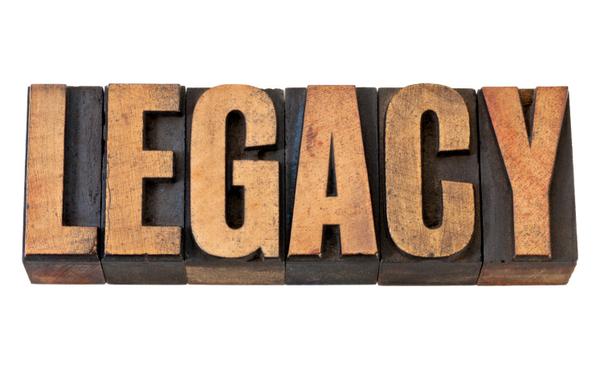The Ethical Will- Leaving Behind a Legacy of Your Values
Published: Fri, 01/11/13
|
|
|
 | |
|
Evan Farr's Elder Law and Estate Planning News |
|
The Ethical
Will- Leaving Behind a Legacy of Your Values Dear ,
 All of us have made contributions in our lives -- whether in education, the workplace, religion, spirituality, the arts, and/or our local communities. We have much to share and are often moved to leave behind something representative of ourselves. Ethical Wills are a way to honor the past, remember family and community, understand your own life better, and provide a lasting legacy for your family for generations to come.
Just as a Last Will and Testament allows you to leave behind your valuables, an Ethical Will allows you to leave behind your values. An Ethical Will is a way to document and share (in writing or via an audio or video recording) your values, your spiritual beliefs, and your "life's lessons." An Ethical Will is a personal statement you make about yourself -- your hopes, your dreams, your joys, your regrets. It may contain professions of love and forgiveness for loved ones in your life. The idea of an Ethical Will is thousands of years old -- dating back to Biblical Times. The popularity of Ethical Wills has increased over the years for many reasons. As baby boomers age, they're spending time thinking about what it is they want to leave behind. With the economy sagging, it's not always money. Also, more and more people, even those who are non-religious, are exploring their spirituality, and almost always come to the realization that there is much more to life than our brief earthly existence. Is there a perfect or right time to write an Ethical Will? Some will wait for the elder years to "sum up" their lives while others begin to take stock in mid-life. Significant life events can spark the imagination including the birth of a child or grandchild; the marriage of one's firstborn; one's own marriage, remarriage, or divorce; the onset of a serious illness; death of a parent, spouse, or close friend, or even the death of a famous person or a major news event. Many often draft their Ethical Will the same time they do their Estate Planning. Although an Ethical Will is not legally binding, it can be added to and kept along with your legally binding Estate Planning documents. The contents of an Ethical Will may not differ from one's spiritual autobiographies or memoirs, but the intent makes an Ethical Will unique. An Ethical Will may include the following:
Sample questions to answer in making your Ethical Will and more information about Personal Histories can be found on the Fairfax Elder Law Firm of Evan H. Farr, P.C. website. In connection with creating your Revocable Living Trust and other Estate Planning documents, The Law Firm of Evan H. Farr, P.C. can help you leave your loved ones with something more than money and assets -- a sense of your values. Call us today at 703-691-1888 to set up an appointment for a no-cost consultation. Upcoming Events January 14:
Financial Wellness Event
Click to RSVP for this event or call 703-691-1888.
January is Financial Wellness Month. Join us for an event focused on Senior Financial Wellness and enjoy some fun refreshments!
At our Senior Financial Wellness event, we will discuss: preparing for the unexpected (including ensuring you have a proper power of attorney & living trust in place); ways to protect your life savings from creditor attack and to avoid falling victim to fraud; and ways to plan, track and manage your money, both now and in the future. This event, hosted by The Law Firm of Evan H. Farr, P.C. is for clients and their friends who would like to learn more about Senior Financial Wellness. Join us for this informative session on January 14 and enjoy fun refreshments while learning how to get a jump on some of those financial New Year's resolutions you'll be making!! Saturday, February 16:
Note: The January 12 Living Trust Plus Seminar is full. We invite you to attend the February 16 seminar. See details below.
Living Trust Plus Seminar: How to Protect Your Assets from the Expenses of Probate and Long Term Care
Click to RSVP for this event or call 703-691-1888.
-Learn how to protect your assets and obtain valuable Medicaid and Veterans benefits to pay for long-term care.
-Learn what the most important estate planning document is, and find out whether yours is up-to-date!
-Find out if your Will is sufficient to meet your needs, or if a Trust is a better instrument for you!
-Find out how you can protect your assets from lawsuits, divorce, and long-term care creditors!
|
| ||||||||
|
|
Unsubscribe to this Newsletter |






